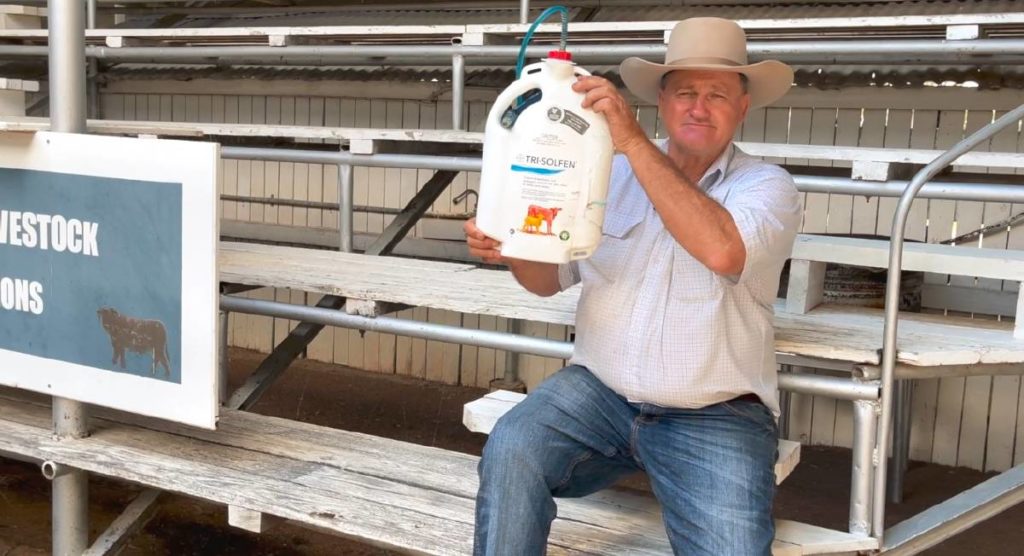Spencer: Pain relief ‘essential’ for cattle
April 12, 2021
Original article by
__

Medical Ethics Tri-Solfen
MAJOR Australian whiteface breeder Adrian Spencer, Ironbark Herefords, Barraba, says pain relief should be even more widely used in the cattle industry.
Located at Barraba in northern NSW, Mr Spencer said he had been using Tri-Solfen to treat calves since its release as part of his regular animal husbandry program.
This included castration, debudding, branding and even when placing HGP implant in an animal’s ear.
“The results of giving pain relief are there for everyone to see,” Mr Spencer said.
“It’s not just it’s the right thing to do in terms of animal welfare, but there is definitely a productivity benefit from treating calves.
“People don’t have any sort of procedure without pain relief. Tri-Solfen is like Panadol for the animals.
“After treatment they’re not in discomfort, so they are not sulking. They are back on their mothers almost straight away and the next day they are behaving like nothing has happened.”
Ironbark was founded in 1933 by the Spencer family who first settled at Barraba in the 1850s.
The 4850 hectare operation runs about 1600 breeders, including 400 commercial cows, and backgrounds about 220 steers and heifers for feedlots.
“I’ve been the industry all my life,” said Mr Spencer, who represents the third generation.
“To me there has been a missing piece to the puzzle.
“And now we have that missing piece, and that is Tri-Solfen.”
Mr Spencer said there was a significant difference in the weights of treated calves, compared to those that had not received Tri-Solfen.
“Producers have a big enough challenge meeting market specifications,” he said.
“We’ve done a lot of work on our genetics to deliver what the consumer and processor wants.
“Products like Tri-Solfen are not just good for animal welfare, they are good for the entire industry.
“I highly recommend producers get on board with it.”
Tri-Solfen is a blue gel, which is administered using an applicator gun. It contained two local anaesthetics, lignocane and bupi vivaine, plus adrenalin to stop bleeding and an antiseptic to prevent infection.
An application of Tri-Solfen costs between about a $1 and $1.50 to treat each animal. It is described as best suited to calves aged six to eight weeks and is designed to provide pain relief for 24 to 36 hours.
The applicator gun has been recently been redesigned, helping make the positioning of the gel more effective.

